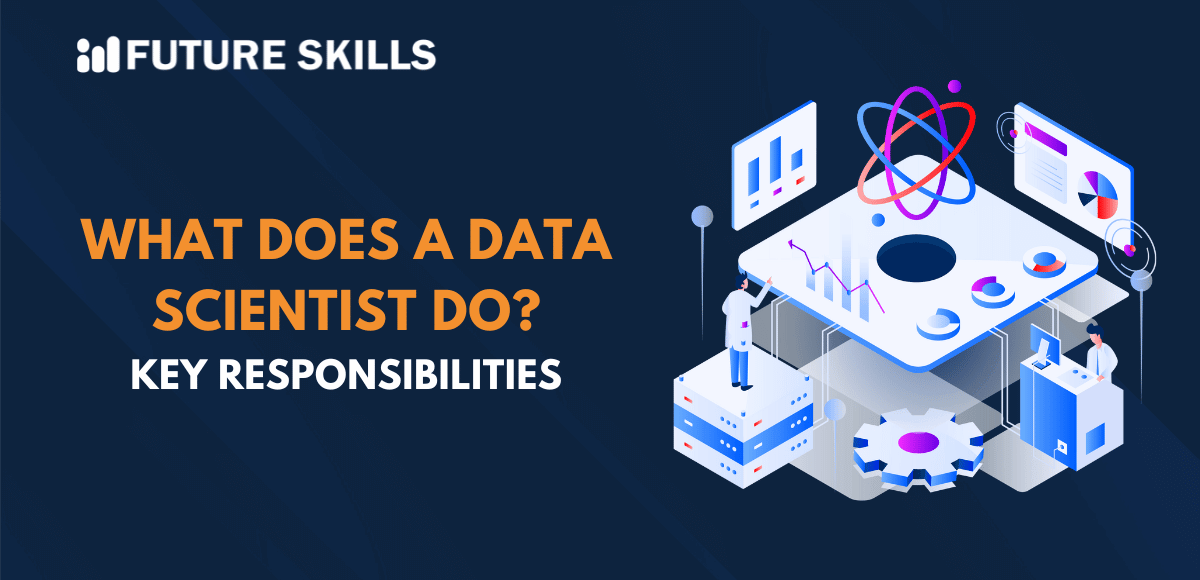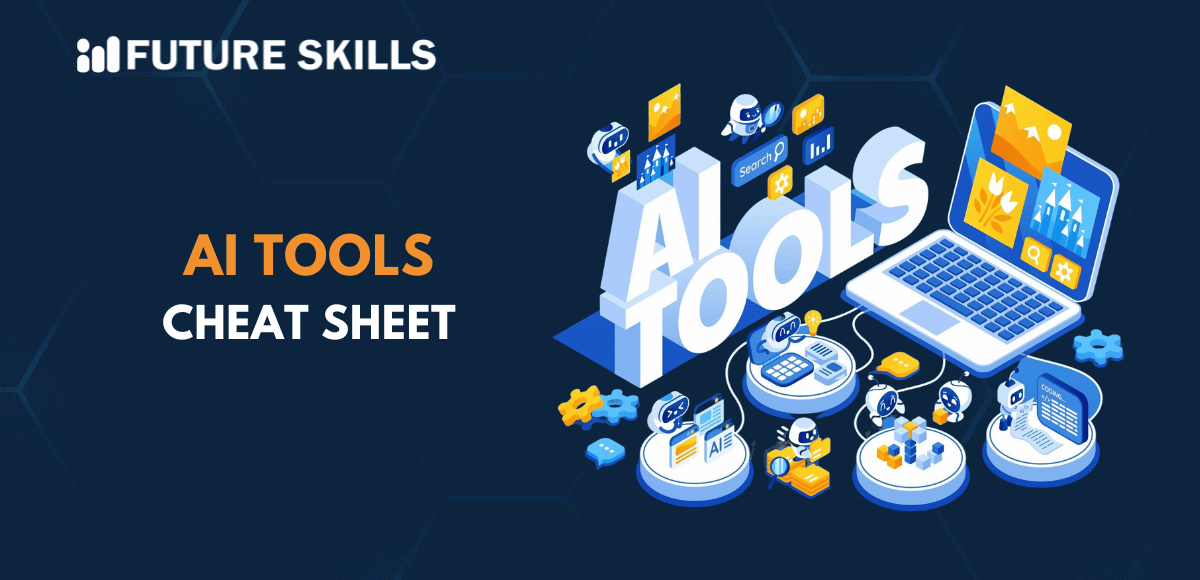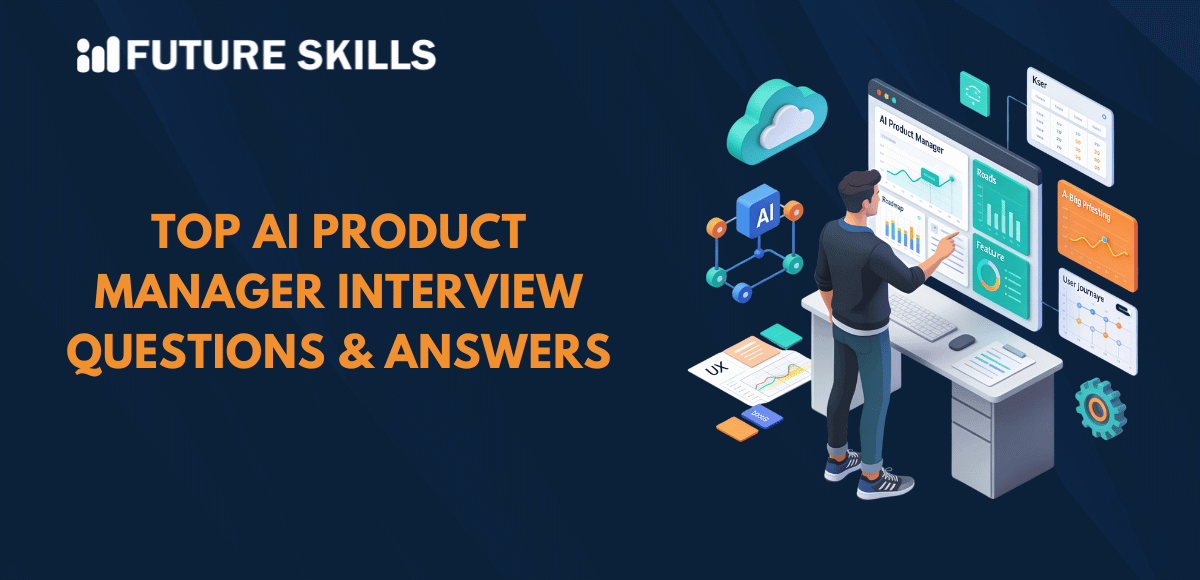Data is the most essential resource that can influence the way businesses work in the digital age. Organizations have to deal with large volumes of data they generate every day and struggle to obtain valuable insights. Data scientists can help in extracting insights from data that would serve as strategic assets for a business. The overview of data scientist roles and responsibilities can help you understand how the profession requires understanding of technology, business acumen and statistics. Let us learn more about the responsibilities of data scientists to figure out whether it would be the right career option for you.
Boost your productivity and innovation through AI with our accredited AI Certification Course. Get started today!
Is Data Science a Reliable Option for Your Career?
Data science is one of the most in-demand fields in 2024 with the capabilities to drive innovation across various industries. It is important to note that data scientists have been immune to large-scale layoffs in the tech industry in 2023. As a matter of fact, the number of data scientist jobs is likely to increase by 35% over the course of the next ten years. Why are data scientists important for organizations? The work of data scientists is more complicated than data analysts and involves advanced analytics along with development of predictive models.
The growing levels of curiosity about questions like “What is the main role of a data scientist?” indicate the expansion of data science. You must also note that data science careers offer various advantages such as better job security and room for improvement. One of the significant reasons for which more candidates are applying for data scientist jobs is the opportunity to drive innovation. Data science is evolving consistently and you will find different opportunities for learning and growing your skills.
Data science offers access to reliable career opportunities that can serve long-term professional rewards. Most important of all, data scientists would enjoy a career that will not waver in face of dynamic changes in the domain of technology. On top of it, data scientists can find promising job prospects, opportunity to contribute to innovation in different fields and scope for professional development.
Get to know how to learn mathematics for Machine Learning and enhance your expertise to excel in this field.
Skills Required for Data Scientist Roles
The skill requirements for data scientist jobs can help you understand how they need diverse skills for the role. You should not only have in-depth understanding of data science concepts but also a set of skills required for success. The roles of data scientist in the technological landscape revolve largely around the technical skills. Some of the most crucial technical skills include fluency in Python or R programming and better knowledge of SQL. The other important technical skills include in-depth understanding of machine learning algorithms and techniques. You must also have experience in using big data technologies, such as Spark or Apache Hadoop.
The list of technical skills required in data science jobs also focuses on data visualization tools such as Power BI and Tableau. Data scientists must have strong command over statistical analysis and experimental design techniques to extract useful insights. The other important skill requirements for data science jobs include text analytics and Natural Language Processing. You must also have in-depth understanding of the different features of cloud computing platforms like Azure or AWS.
Apart from the technical skills, you must be fluent in mathematics and statistics. It is important to note that most of the work in data science involves the use of mathematics and statistics. You should have in-depth knowledge of probability theory, statistical tests, and distributions to ensure effective data interpretation and obtain insights. Data scientists also need strong understanding of linear algebra and calculus to learn about different machine-learning concepts. As a data scientist, you would also need soft skills for communication and collaboration to achieve the best results.
Roles and Responsibilities of Data Scientists
Data scientists have to take care of different tasks in their profession. You can find different data scientist responsibilities for different organizations and industries. The responsibilities associated with the job of data scientists are essential requirements to transform raw data into meaningful insights. One of the interesting things about data scientist jobs is the flexibility of the role. You may work on cleaning datasets, presenting insights to stakeholders and testing ML algorithms. Let us learn more about the distinctive responsibilities of data scientists that make them stand out in the technological landscape.
-
Collecting Valuable Data
The foremost task expected from a data scientist involves extraction of valuable data from different sources. Data scientists must collect structured and unstructured data from sources such as social media platforms, databases, APIs and websites. Data scientists need comprehensive knowledge of data collection tools and techniques to have reliable and accurate data at their disposal.
-
Data Preparation and Cleaning
Raw data collected from different sources is generally unstructured and may have a lot of irrelevant information and inaccuracies. For example, raw data could have missing values or inconsistencies. Data scientists must clean and prepare the data to ensure that it is complete and accurate for analytics tasks. The data preparation and cleaning process generally involves removal of duplicate records, management of missing values, and working with outliers. Another important part of data preparation focuses on transforming data into suitable formats for analysis.
-
Exploratory Data Analysis and Visualization
After preparing the data, you must analyze it to extract correlations, trends and patterns. The data scientist job description would be incomplete without references to exploratory data analysis that involves statistical techniques and tools. It is also important to note that data visualization also helps in ensuring accessibility and better comprehension of insights. Exploratory data analysis is a significant requirement to understand data and derive useful insights alongside learning about the challenges or opportunities.
-
Developing Data Science Models
You might have assumed that data scientists are responsible for creating a special class of models. On the contrary, data scientists have to work on developing and training machine learning models. Data scientists have to select the suitable algorithms, use data preprocessing techniques and evaluate the performance of models. As a data scientist, you have to refine the machine learning models continuously to achieve better predictive power and accuracy. The predictive models created by data scientists can help with prediction of future trends and behavioral patterns according to historical data.
-
Deploying and Monitoring Predictive Models
Data scientists also have to deploy predictive models into production environments where data science can serve tangible value. The models have to go through continuous maintenance and monitoring to offer effective and accurate results. You must note that data scientist roles and responsibilities for monitoring predictive models must also focus on visualization and reporting.
Data scientists should have the abilities for communicating their observations to different stakeholders, including the non-technical ones. Fluency in the use of data visualization tools is an essential requirement to achieve accurate reporting in a clear manner. Visualizations can help stakeholders understand the actionable insights and utilize them to arrive on informed decisions.
-
Continuous Learning and Development
Data science is evolving continuously and data scientists must be prepared for every change that comes their way. Continuous learning is an essential requirement to know the latest technologies, industry best practices and algorithms. For instance, data scientists must learn about the latest technological advancements in sensor technology and machine learning to work on autonomous vehicles. Data scientists should participate in conferences, workshops and networking events alongside capitalizing on courses to learn about new tools, industry trends and best practices.
Expand your AI skills and learn how to use AI effectively in your business with AI for Business Course. Enroll now!
Discovering the Path to Become Data Scientists
The overview of the roles and responsibilities of data scientists reveals that they are invaluable assets in the modern technological landscape. You cannot think of smart business decisions or projects powered by AI without the involvement of data science. The data scientist responsibilities also showcase how the job requires advanced skills. With an average annual salary ranging up to $200,000, data science is one of the most in-demand professions in technology. You can also become a data scientist and capitalize on the long-term rewards in a thriving career.
Candidates aspiring to become data scientists must seek the best resources to learn essential skills for data scientist jobs. On top of it, a professional also needs credible certifications and academic background to create a strong foundation for their data science career. Another important requirement for pursuing careers as data scientists is the participation in real-world projects to enhance your portfolio. The other essential requirement for data scientist jobs is the dedication to learn continuously and stay updated about the latest tools, techniques and trends.
Final Thoughts
The responsibilities of data scientists primarily focus on creating predictive models that can draw actionable insights from data within seconds. Most of the examples of data scientist job description showcase the different ways in which data scientists can help you make sense of large volumes of data. Data scientists collect, clean, prepare and process data to obtain insights that they can present with accurate visualizations. At the same time, data scientists must also learn about new technological advancements and trends that can influence their work. Find the best resources to learn the fundamentals of data science before you prepare to become a data scientist.







